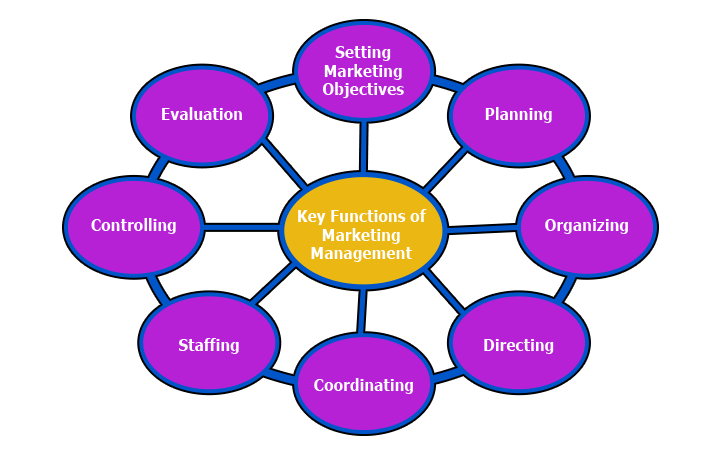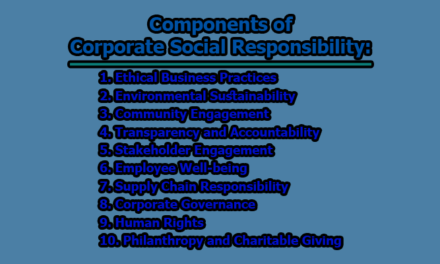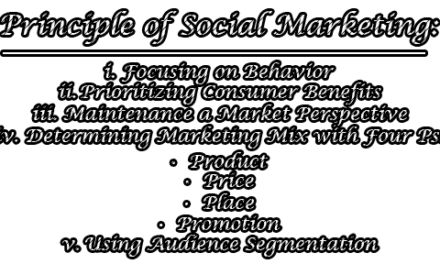Key Functions of Marketing Management:
Marketing management is a crucial aspect of organizational success, involving the planning, implementation, and control of activities designed to bring about a desired exchange with target markets. It encompasses a range of functions that contribute to achieving the organization’s goals and ensuring long-term sustainability. The key functions of marketing management include setting marketing objectives, planning, organizing, directing, coordinating, staffing, controlling, and evaluation.
1. Setting Marketing Objectives:
Setting marketing objectives is the foundational step in the marketing management process. Objectives serve as a roadmap, guiding the marketing team toward specific and measurable goals aligned with the overall organizational mission.
1.1 Identification of Clear Goals: The process begins with a thorough understanding of the organization’s broader objectives. Marketing managers collaborate with stakeholders to identify specific goals, which may include increasing market share, launching a new product, expanding into new markets, or enhancing brand visibility.
1.2 Measurability and Specificity: Objectives must be measurable and specific to provide a clear benchmark for success. For example, instead of a vague goal like “increase brand awareness,” a specific objective could be “achieve a 20% increase in brand recall among the target audience within the next quarter.”
1.3 Alignment with Organizational Goals: Marketing objectives should seamlessly align with the overall strategic goals of the organization. This ensures that marketing efforts contribute directly to the success of the business and its long-term sustainability.
2. Planning:
Once marketing objectives are established, the planning phase involves developing a comprehensive strategy to achieve those objectives. This involves careful analysis, research, and decision-making to create a roadmap that outlines how the goals will be accomplished.
2.1 Market Research and Analysis: Marketing planning starts with a thorough understanding of the market, competitors, and target audience. Market research provides valuable insights into consumer behavior, market trends, and potential opportunities or threats.
2.2 Segmentation, Targeting, and Positioning (STP): Through segmentation, the market is divided into distinct groups based on demographics, psychographics, or behavior. Targeting involves selecting the most attractive segments, and positioning focuses on creating a unique and compelling image for the brand or product within those segments.
2.3 Strategic and Tactical Planning: Marketing plans encompass both strategic and tactical elements. Strategic planning outlines the overarching approach, such as product development, pricing strategies, and distribution channels. Tactical planning involves specific actions and timelines, including the creation of advertising campaigns, social media strategies, and promotional events.
3. Organizing:
Organizing in marketing management involves structuring the marketing department and allocating resources efficiently to execute the planned strategies.
3.1 Departmental Structure: Marketing managers design a departmental structure that aligns with the goals and strategies outlined in the marketing plan. This may involve creating specialized teams for areas such as digital marketing, content creation, market research, and public relations.
3.2 Resource Allocation: Efficient allocation of resources, including budget, personnel, and technology, is crucial for successful execution. Marketing managers prioritize activities based on their contribution to achieving objectives and allocate resources accordingly.
3.3 Responsibility Assignment: Each member of the marketing team is assigned specific responsibilities and roles. Clear communication of roles helps prevent overlaps, ensures accountability, and fosters a collaborative environment.
4. Directing:
Directing is a crucial function of marketing management that involves guiding and leading the marketing team to implement the formulated strategies effectively.
4.1 Leadership and Vision Communication: Marketing managers play a pivotal role in providing visionary leadership. They communicate the overall marketing vision, inspire team members, and create a shared sense of purpose. Clear communication ensures that everyone understands their role in achieving the established marketing objectives.
4.2 Motivation and Team Building: Motivating team members is essential for maintaining high levels of creativity, productivity, and commitment. Marketing managers foster a positive and collaborative work environment, encouraging innovation and teamwork. Team-building activities and incentives contribute to a cohesive and motivated marketing team.
4.3 Supervision and Feedback: Directing involves overseeing day-to-day activities and providing constructive feedback. Marketing managers monitor progress, address challenges, and offer guidance to ensure that the team is on track to achieve its goals. Regular performance evaluations help in recognizing achievements and identifying areas for improvement.
5. Coordinating:
Coordinating is the function that ensures all marketing efforts work together seamlessly to present a unified and consistent message to the target market.
5.1 Cross-Functional Collaboration: Marketing activities often involve collaboration with other departments such as sales, product development, and customer service. Coordinating efforts across departments ensures that marketing strategies align with overall organizational objectives and that everyone is working towards a common goal.
5.2 Consistent Messaging: Coordinating efforts include maintaining a consistent brand message across various channels and touchpoints. Whether it’s advertising, social media, or public relations, a unified message enhances brand credibility and recognition.
5.3 Integration of Marketing Mix Elements: Coordinating the marketing mix elements (product, price, place, and promotion) is essential. Ensuring that these elements work together harmoniously maximizes the impact of marketing strategies on the target audience.
6. Staffing:
Staffing in marketing management involves recruiting, training, and retaining a team of skilled professionals capable of executing the marketing strategies effectively.
6.1 Recruitment and Talent Acquisition: Marketing managers are responsible for identifying the skills and expertise required for successful marketing campaigns. They engage in recruitment activities to attract individuals with diverse talents, experiences, and perspectives.
6.2 Training and Development: Once a team is in place, ongoing training and development are essential. Marketing is a dynamic field, and staying updated on industry trends, tools, and technologies is crucial. Training programs enhance the team’s capabilities and keep them competitive.
6.3 Retention Strategies: To retain top talent, marketing managers implement strategies such as providing growth opportunities, recognizing achievements, offering competitive compensation, and fostering a positive work culture. Retaining skilled professionals ensures continuity and stability in marketing efforts.
7. Controlling:
Controlling is a critical function in marketing management that involves monitoring and evaluating ongoing marketing activities to ensure they align with the planned strategies.
7.1 Performance Measurement: Marketing managers establish key performance indicators (KPIs) to measure the success of marketing campaigns and activities. These may include metrics like return on investment (ROI), customer acquisition cost, conversion rates, and brand sentiment. Regularly tracking these metrics provides insights into the effectiveness of marketing efforts.
7.2 Deviation Correction: Controlling also involves identifying any deviations from the planned strategies and taking corrective actions. If performance metrics indicate that certain aspects of the marketing plan are not delivering the expected results, adjustments can be made in real-time to optimize outcomes.
7.3 Adaptation to Market Changes: Markets are dynamic, and external factors such as economic conditions, consumer behavior, and competitive landscapes can change rapidly. Controlling includes staying vigilant to market changes and adapting marketing strategies accordingly to maintain relevance and competitiveness.
8. Evaluation:
The evaluation function in marketing management involves assessing the overall success and effectiveness of marketing campaigns and initiatives.
8.1 Comprehensive Analysis: Marketing managers conduct a comprehensive analysis of the entire marketing effort. This includes evaluating the performance of individual campaigns, the impact on brand equity, customer engagement, and the overall contribution to the achievement of marketing objectives.
8.2 Customer Feedback and Satisfaction: Gathering customer feedback is integral to the evaluation process. Analyzing customer satisfaction surveys, reviews, and comments provides valuable insights into the perceived value of products or services, helping marketing managers refine strategies for improved customer satisfaction.
8.3 Post-Campaign Reviews: After the conclusion of major campaigns or initiatives, a thorough post-campaign review is conducted. This involves assessing what worked well, what could be improved, and extracting key learnings that can inform future marketing strategies.
In conclusion, effective marketing management is vital for an organization’s success in a competitive business environment. By setting clear objectives, planning strategically, organizing resources, directing efforts, coordinating activities, staffing with skilled professionals, controlling processes, and consistently evaluating performance, marketing managers contribute significantly to achieving the organization’s overall goals. A well-executed marketing management strategy not only enhances brand value but also ensures sustained growth and profitability in the dynamic marketplace.

Library Lecturer at Nurul Amin Degree College










